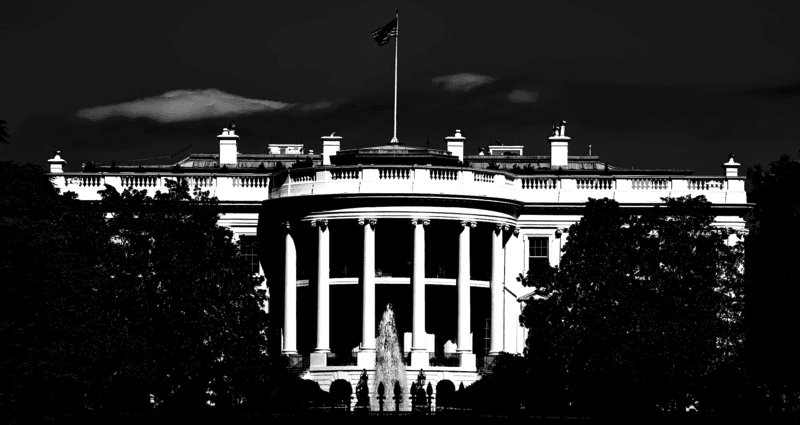Any survey of the antidemocratic reaction in the United States is bound to provoke alarm and perhaps even a feeling of hopelessness. There is no getting around the grim facts about the threat facing the nation. And yet, if we take the long view, I continue to think other facts can give us some grounds for optimism.
Article continues after advertisement
I draw some of that hope from a consideration of the American past. This isn’t the nation’s first visit to the pro-authoritarian rodeo. In the struggle against the slaveholding oligarchy, in the taming of what, in 1907, President Theodore Roosevelt called the “malefactors of great wealth,” and in the advancement of the civil rights movement, justice ultimately prevailed, however imperfectly.
In the long run, it can be hoped, the MAGA movement and its defenders won’t look that different from Patrick Buchanan and the America Firsters. They, like Tucker Carlson, Stew Peters, and Laura Ingraham, will recede into the grubby footnotes of history, where they may join the likes of Father Coughlin, Bob Jones Sr., Gerald L. K Smith, and other purveyors of grievance and race hate. But the descent into fascism—if it hasn’t already happened by the time these pages reach you—remains the most likely path through which the American experiment ends, if it is to end.
Those who hope for progress can take comfort in the knowledge that the facts are on our side.
Meeting the present challenge won’t be easy, and there is no guarantee of success. Still, those who hope for progress can take comfort in the knowledge that the facts are on our side. I want to draw attention to six principal findings reported in this book, and which should be of interest to a pro-democracy movement:
We are (still) in the majority.
They are divided.
The separation of church and state is a good idea—and we should try it.
Extreme levels of material inequality are eroding democracy.
Knowledge is power.
Organization matters.
We Are STILL in the Majority
Those who wish to protect democracy in the United States should hold at the front of their minds a simple fact: We—that is, those of us who reject the politics of conquest and division—are in the majority. Though they claim to speak for “real Americans,” the antidemocratic reactionaries are nothing more than a disproportionately mobilized minority. It follows that those of us who believe in democracy must build a tent big enough to keep the pro-democracy majority together, and mobilize accordingly.
This is what Lincoln accomplished in prosecuting the Civil War, and it was what the Germans failed to accomplish in the interwar period, when various factions to the left of the Nazi party failed to put the commitment to democracy ahead of their many differences. In the last several years I have heard multiple keynote speakers at right-wing and Christian nationalist gatherings repeat a quote famously attributed to Ronald Reagan: “The person who agrees with you 80 percent of the time is a friend and an ally—not a 20 percent traitor.”
We would do well to follow that advice.
Of course, being in the majority is no guarantee of success in the American system. We have to face up to the fact that the U.S. Constitution can be and has been exploited for countermajoritarian purposes. The guardrails of our democracy were meant to protect the rights of minorities, not to facilitate the rise of a militant minority that wishes to dominate. If we are to guard against the new American fascism, we will have to consider some political reforms.
Some components might include examination of the Electoral College, which is a debilitating legacy from the founding period that favors minority rule and distorts presidential campaigns by funneling them into a nonsensical collection of “battleground states.”
The Supreme Court and the federal judiciary, too, must be rescued from corruption and partisan capture. Enforceable (rather than “self-monitored”) ethics guidelines, among other measures, should be deliberated and are within the power of Congress to achieve. Term limits and other reforms must be considered in the efforts to create a legitimate court from the ruins of the present one.
Voting rights must be protected, too. Here again the path to reforming race-based gerrymandering and targeted disenfranchisement runs through the legislative and judicial processes that we already have.
More fundamental reforms to America’s governmental institutions are also worth considering, if only to remind us of how hard the work of democracy is. In another legacy from the past, the Senate, for example, gives the six hundred thousand residents of Wyoming as much say as forty million Californians. The system of territorial representation, according to which congressional representatives are elected within geographically defined districts, may offer trade and land protections and other advantages. But a more proportional system of representation could place a check on the antidemocratic reaction’s ability to leverage a radicalized minority.
Structural reforms aside, building a majority for democracy means convincing Americans that democracy matters—and that it matters more than the many policies that are rightly the subject of debate within any democracy. Moderates, liberals, and progressives can learn something here from the right. Their tent includes lots of people who really should not be getting along with one another. Which brings up the next lesson gleaned from the reporting:
They Are Divided
Human beings have an unfortunate tendency to construe adversaries as diabolically unified in their monomaniacal pursuit of evil. The antidemocratic reaction epitomizes this tendency when proponents like Flight 93 guru Michael Anton identify the pro-democracy enemy as “the globalist borg”—a characterization that anyone who has been inside the tent at a gathering of disputatious liberals and progressives knows to be laughably optimistic.
One job of the pro-democracy movement must be simply to heighten and expose these contradictions.
But the same caution applies to understanding the antidemocratic reaction. It isn’t under the thumb of Satan or any of his deputies. It may be organized, but there are cracks in the coalition. It is a gathering of sometimes un-like-minded people wrapped in a bundle of incompatible beliefs and agendas. That is its great weakness, and it should be exploited.
The source of the contradictions in the antidemocratic reaction is that it rests on an alliance between oppressors and many of their principal victims. It relies on the money of the few whose primary interest is to protect their power and privilege at the expense of the rest of society, and it relies on the votes of the many who will by and large suffer under the same extractive arrangements. To add to the mix, it trades in the ideas of an intellectual class that is parasitic on both sides—sucking money out of the oligarchs while offering right-wing identity politics and false hope to the resentful.
The reliance on grievance and fear as a main political binding agent may offer the satisfaction of group identity, in the short term at least, but its contradictions are easily exposed. This is why reactionaries like J. D. Vance and Josh Hawley point in so many directions at once. On the one hand, these graduates of elite universities expect us to believe that they are the genuine representatives of the common man, the forgotten hillbillies, and all that. With reactionary intellectuals at their side, they pretend to stand up for workers against oppressive corporations. On the other hand, there is zero realistic chance that they will deviate in any significant way from the preferred policies of the private equity managers that have funded their careers. The only thing we can be sure of is they will retire to places like the Claremont Institute, where they may join a new priestly elite that promises to justify the ways of money to man.
This is why the ideology of the antidemocratic reaction is such a mess. Does it want “small government”—or does it want a government big enough to share your bedroom and your body? Does it want “free speech”—or does it want to ban books, limit the information doctors are allowed to share with their patients, and compel religious speech in public schools? Does it want “deregulation”—or does it want to bring “the woke corporations” of the world to heel? Does it want religious freedom, or does it want theocracy? Is it standing up for “hardworking Americans”—or is destroying workplace protections and setting up the rule of a new, righteously conservative elite and helping the funders grow their fortunes?
One job of the pro-democracy movement must be simply to heighten and expose these contradictions—not just for the benefit of the general public but for the enlightenment of supporters of the antidemocratic reaction themselves.
__________________________________

From Money, Lies, and God: Inside the Movement to Destroy American Democracy by Katherine Stewart. Forthcoming from Bloomsbury Publishing on February 18, 2025. Copyright © 2025 Katherine Stewart. All rights reserved.
